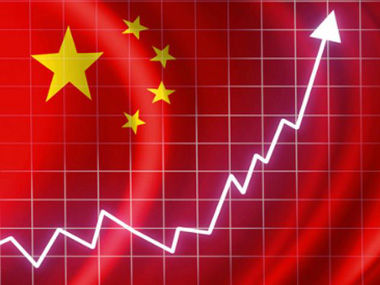


China is on its way to becoming a high-income nation by 2027, and is unlikely to linger in the middle-income trap, U.S. investment bank Morgan Stanley said in a report issued on Feb. 15.
Though many barriers and pitfalls lie along China’s path to the rarefied ranks of high-income society, analysts have forecast that China’s shift toward higher value-added manufacturing and its rising domestic consumption will boost the country’s per capita GNI from its current $8,100 to above $12,500 by 2027, lifting it over the line of high-income economies as defined by the World Bank.
The report said China may become the third country with a population of more than 20 million to achieve this defining goal over the past three decades, coming only after Poland and South Korea.
In response to some Western media predictions of China being struck by a bank crisis, Morgan Stanley pointed out that China can likely avoid this problem and hold fast to economic stability, as strong external factors including high levels of foreign currency reserves leave the country with plenty of leeway to manage domestic liquidity.
Despite analysts’ bullish attitudes toward China’s future economy, the country’s economic development still must contend with many risks, including a debt cycle that could spin out and recent concerns over protectionism.
 Fire brigade in Shanghai holds group wedding
Fire brigade in Shanghai holds group wedding Tourists enjoy ice sculptures in Datan Town, north China
Tourists enjoy ice sculptures in Datan Town, north China Sunset scenery of Dayan Pagoda in Xi'an
Sunset scenery of Dayan Pagoda in Xi'an Tourists have fun at scenic spot in Nanlong Town, NW China
Tourists have fun at scenic spot in Nanlong Town, NW China Harbin attracts tourists by making best use of ice in winter
Harbin attracts tourists by making best use of ice in winter In pics: FIS Alpine Ski Women's World Cup Slalom
In pics: FIS Alpine Ski Women's World Cup Slalom Black-necked cranes rest at reservoir in Lhunzhub County, Lhasa
Black-necked cranes rest at reservoir in Lhunzhub County, Lhasa China's FAST telescope will be available to foreign scientists in April
China's FAST telescope will be available to foreign scientists in April "She power" plays indispensable role in poverty alleviation
"She power" plays indispensable role in poverty alleviation Top 10 world news events of People's Daily in 2020
Top 10 world news events of People's Daily in 2020 Top 10 China news events of People's Daily in 2020
Top 10 China news events of People's Daily in 2020 Top 10 media buzzwords of 2020
Top 10 media buzzwords of 2020 Year-ender:10 major tourism stories of 2020
Year-ender:10 major tourism stories of 2020 No interference in Venezuelan issues
No interference in Venezuelan issues
 Biz prepares for trade spat
Biz prepares for trade spat
 Broadcasting Continent
Broadcasting Continent Australia wins Chinese CEOs as US loses
Australia wins Chinese CEOs as US loses